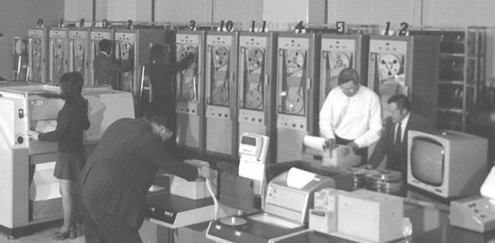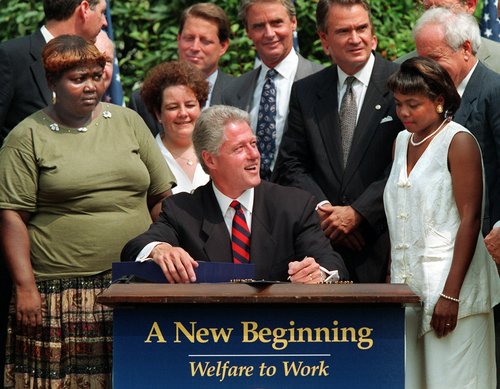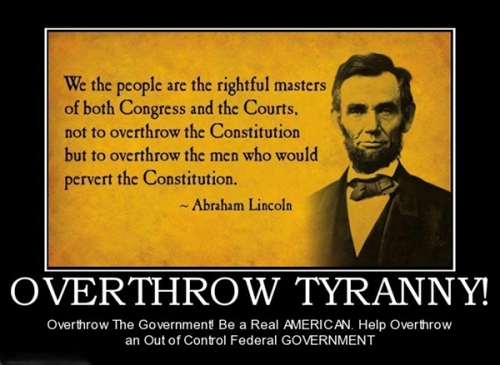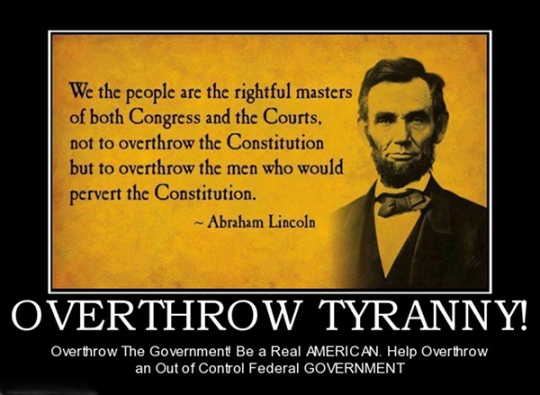 Of the 2.2 million people incarcerated in the United States, about half are parents, and at least 1 in 5 has a child-support obligation. For most, the debt will keep piling up throughout their imprisonment: By law or by practice, child-support agencies in much of the country consider incarceration a form of “voluntary impoverishment.” Parents like Harris, the logic goes, have only themselves to blame for not earning a living. But that may be about to change.
Of the 2.2 million people incarcerated in the United States, about half are parents, and at least 1 in 5 has a child-support obligation. For most, the debt will keep piling up throughout their imprisonment: By law or by practice, child-support agencies in much of the country consider incarceration a form of “voluntary impoverishment.” Parents like Harris, the logic goes, have only themselves to blame for not earning a living. But that may be about to change.

What does this tell you about overdue child support?
Republicans opposed to new regulations
The Obama administration has authorized a new set of regulations that would reclassify incarceration as “involuntary,” giving parents the right to push the pause button on child-support payments. The regulations are set to be published early next year and implemented by states by 2017.
Congressional Republicans oppose the new policy. They argue that it would undercut the 1996 welfare reform act, which pressed states to locate missing fathers and bill them for child support so taxpayers wouldn’t bear the full burden of their children’s welfare. (What idiots, the debt can’t be paid anyway.)
“I am fundamentally opposed to policies that allow parents to abdicate their responsibilities, which, in turn, results in more families having to go on welfare,” Senate Finance Committee Chairman Orrin Hatch, R-Utah, said in a speech in June on the Senate floor. Obama’s new regulations, he said, “would undermine a key feature of welfare reform, which is that single mothers can avoid welfare if fathers comply with child-support orders.”
Frances Pardus-Abbadessa, head of child-support enforcement for New York City, said: “The complaint we often hear is, ‘Why should incarcerated fathers, of all people, be the ones to get a break from their obligations — and at a cost to the taxpayer?’ “
Administration officials and their supporters counter that billing fathers while they’re in prison does little but dig them deeper into debt.
“Billing poor fathers doesn’t help poor mothers and kids become less poor,” said Jacquelyn Boggess, a poverty expert with the Center for Family Policy and Practice.
“All it creates,” she said, “is a highly indebted individual.”
Debt piles up
For Earl Harris, the problem was keeping up. He had a job in prison, cleaning the kitchen, but it paid only $7.50 a month — well short of the $168 the state of Missouri was billing him.
“Didn’t they know I was in prison?” he asks. “Weren’t they the ones that put me in there?”
When he got out in 2001, the unpaid amount was listed on his credit report — and pursued by an agency with the power to garnish 65 percent of his wages, intercept his tax returns, freeze his bank account, suspend his driver’s license and, if he failed to pay, lock him up again. By then, his debt had surged to more than $10,000.
Harris entered barbering school but soon returned to drug dealing and was thrown back into prison for nearly a decade. Meanwhile, his child-support debt swelled to more than $25,000.
Incarceration currently deemed ‘voluntary’
Harris’s plight is not unusual. The Marshall Project interviewed nearly three dozen noncustodial parents in 10 states; they all left prison owing between $10,000 and $110,000 in child support. Mostly fathers who are disproportionately black and poor, these parents faced prosecution for not repaying the debt, even after their children were grown.
And what they were able to pay did not necessarily go to their children or the mother. The state often kept their money as repayment for welfare, child care or Medicaid benefits that had been provided to the family while the dad was locked up.
To address the issue, the Obama administration began drafting new rules about four years ago. As currently written, the rules would forbid state child-support agencies from classifying incarceration as “voluntary,” granting parents the legal right to a reduction in payments while they’re in prison, a right that does not exist in 14 states.
The rules would require agencies to inform incarcerated parents of this right and would encourage agencies to provide a reduction in payments automatically. And they would urge states to transfer all payments directly to custodial parents — mostly mothers — and their children.
The administration proposal would provide about $35 million over the next five years to modernize the child-support system and to provide job training, job placement, bus fare, and other services to fathers facing prosecution for nonpayment.
The rule “will make sure that arrears don’t accumulate endlessly while a parent is incarcerated,” said Vicki Turetsky, President Barack Obama’s commissioner of child-support enforcement. “Our goal is to collect, month by month, for kids. We can do that when parents are employed, not in debt.”
Hatch and House Ways and Means Committee Chairman Paul Ryan, R-Wis., have introduced legislation to block the new rules, though neither lawmaker has pushed to advance the measure.
Ron Haskins, a child-support expert at the Brookings Institution, said he and other conservatives actually support parts of the new regulations. But they worry, he said, that the policy “could begin a long process of undermining the child-support concept, which they strongly believe in.”
The struggle after prison
Back in North St. Louis, Earl Harris, now 38, has put in his hours as an apprentice barber and is one written test away from getting his license. In the meantime, he is living in a halfway house and working at a factory across the river in Illinois, packaging Febreze canisters and Swiffer mops.
His hours are 4 p.m. to midnight, though he arrives an hour early to make sure he doesn’t lose his spot to another temp worker waiting outside the building in hopes of getting a shift. After work, he typically gets a cousin to drive him back to his dorm room, where he sleeps from 2 a.m. to 6 a.m. before heading to his daily support group for fathers.
By 8 a.m. the dads are circled up, talking about having kids and debt. They have come because the program helps them find a job, develop strategies for handling their arrears and work on their parenting skills. They also get free legal help. Many of them were incarcerated, almost exclusively for selling drugs, and everyone is wearing a jacket and tie, the uniform of employment.
One father, Louis Moore, said his debt soared to almost $60,000 while he was inside. Allan Newcomer’s is more than $68,000. “Everybody in the penitentiaries was getting the letters,” Newcomer said.
Lisl Williams, a former judge who now works with the fathers, said even if they spend their money on food, clothes or toys for their children, it does not reduce their debt. In many cases, she said, the whole family — the mother, aunts, uncles, cousins — chips in to help pay it, and then the money they pay goes to the government as repayment for welfare they received long ago.
Because the fathers don’t have large incomes to garnish, bank accounts to tap or property to seize, she adds, they are more likely to face re-incarceration for not paying their arrears.
‘I know I’m the bad man’ (Oh, really?)
Another dad, Corey Mason, said he was incarcerated and already racking up child-support debt when he got a notice saying he might have another child by a different mother. He was instructed to go to the medical wing, get a DNA swab and send it to the agency. When they confirmed his paternity, he started getting a new set of child-support bills.
Mason sent several handwritten letters to the agency explaining that he was in prison. He said he never got a response. (So who is really bad? You know!)
Now that he’s out, Mason has a job at the Marriott hotel downtown. He works the graveyard shift, cleaning, shutting down the bar, providing towels to customers who ask for extra. Because the child-support agency garnishes well over half his weekly paycheck, he turned down a recent promotion.
“I want to grow in the company. But I don’t want to work that much harder if they’re just going to take all of it to pay for history,” Mason said.
“I know I’m the bad man. But I’m working harder now than I ever have, and it’s like this is designed to keep me behind, backed up against the wall, in debt for the rest of my life.” (Hear the defeat and fear? That’s what they want!)
Obama: ‘Too many fathers M.I.A, AWOL’
Obama has frequently scolded the same absentee fathers who now stand to benefit from his regulations. “Too many fathers are M.I.A., too many fathers are AWOL, missing from too many lives and too many homes,” he told a Chicago audience in 2008 as a candidate for president.
Some fathers interviewed for this story had multiple children — one man said he had 12 — by different mothers. Many seemed less than eager to find employment. A few served time for domestic violence.
Some mothers say these men do not deserve to be freed of their debt.
“There’s a real tension here, as a matter of public policy,” said Joan Entmacher, an expert on family poverty at the National Women’s Law Center. “There are absolutely fathers who evade their responsibilities, saying, ‘Oh, I can’t pay that,’ and not even trying. We don’t want to simply reward that attitude.”
Even if a father is a deadbeat, however, the evidence is clear: Noncustodial fathers are far more likely to pay child support, and otherwise reengage with their families, if payments are manageable.
In a 2012 study by the Center for Policy Research, a private nonprofit research organization, fathers paid a much higher percentage of their monthly obligations when offered relief from unpayable state-owed debt. In studies in Maryland, Illinois and California, fewer than 15 percent remained noncompliant once the old debts were reduced and they were given a schedule of regular payments. And the fathers most likely to abide by “debt compromise” agreements were those who had been incarcerated.
Boggess, the child-support analyst, said that trying to collect the accumulated debt is “like squeezing an empty bottle and hoping something comes out.
“These fathers are poor, period. Their arrears are uncollectible, period,” she said. “They’ve never even met anyone who had $30,000.”
States taking action
Many states have already taken action. In 36 states and the District, incarceration is no longer officially considered “voluntary” impoverishment, and an imprisoned father is legally entitled to have his monthly child-support bill modified to as little as $50 a month or, in rare cases, stopped altogether.
But it is still up to the father to prove he is incarcerated, and then to file for the reduction. This involves navigating a maze of paperwork from prison, usually with no lawyer, irregular access to phones and, in many cases, an eighth- or ninth-grade education.
The most common pitfall, said Bo Twiggs, the director of UpNext, a program in New York City that helps recently incarcerated fathers, is that the incarcerated dad has no idea his child support is piling up because he isn’t getting the notices. The debt keeps compounding – and federal law prohibits the reduction of child-support bills retroactively.
“It’s hard for these fathers to understand that they can’t wait, they can’t adjust to life in prison before dealing with child support, that they need to take action immediately because the debt will be permanent,” Twiggs said. “That’s really counterintuitive.”
When these fathers get out of prison, they often don’t notice the debt until the state begins pursuing it, “which forces them to go underground instead of rejoining the formal economy,” said Turetsky, Obama’s commissioner of child-support enforcement.
Indeed, research shows that the two most important factors in a former prisoner’s successful reentry into the community are employment and positive relationships with family. Both of these are hindered by the aggressive pursuit of child-support arrears: Garnishing 65 percent of a father’s paycheck, so he is tempted to earn cash off the books; suspending his driver’s license so he can’t get to work; sending him bills that are so far beyond his capacity to pay that he keeps his distance from his family.
“I see it all the time,” Twiggs said: “Not reengaging with the family. Noncompliance with parole and child support. Under-the-table efforts at income. Self-defeat, high anxiety, general institutional distrust. All of that is triggered by this absolutely overwhelming, impossible feeling of debt.”
portions from the Atlanta Journal-Constitution
 Thousands of Arizona residents that paid off their child support debt continued to be marked as subject to property liens because of a state Department of Economic Security screwup. The ongoing furor finally drove the agency to do something about the problem, according to insiders. Dozens of people had to be hired to help figure it out. Officials say the problem is “almost fixed.”
Thousands of Arizona residents that paid off their child support debt continued to be marked as subject to property liens because of a state Department of Economic Security screwup. The ongoing furor finally drove the agency to do something about the problem, according to insiders. Dozens of people had to be hired to help figure it out. Officials say the problem is “almost fixed.” The state has about 321,000 active child support cases, with the state and county splitting them roughly in half. Besides typical cases, the state automatically receives cases that involve federally assisted foster care, as well as recipients of Medicaid or welfare. Under previous rules, if someone ordered to pay child support were to fall more than two months behind, an administrative lien would be placed on all current and future property they own. (The state recently changed that to four months.) It is claimed that the lien prevents the person from selling the property, typically a home, until the past-due payments are satisfied. That isn’t exactly true as long as the payment is made before the house closes. If a parent who paid the past-due amount attempts to buy or sell and home and finds that a lien hasn’t been released, a title or mortgage company can submit a request to DES’ Division of Child Support Services, which sends the proper information to the companies “within 48 hours.”
The state has about 321,000 active child support cases, with the state and county splitting them roughly in half. Besides typical cases, the state automatically receives cases that involve federally assisted foster care, as well as recipients of Medicaid or welfare. Under previous rules, if someone ordered to pay child support were to fall more than two months behind, an administrative lien would be placed on all current and future property they own. (The state recently changed that to four months.) It is claimed that the lien prevents the person from selling the property, typically a home, until the past-due payments are satisfied. That isn’t exactly true as long as the payment is made before the house closes. If a parent who paid the past-due amount attempts to buy or sell and home and finds that a lien hasn’t been released, a title or mortgage company can submit a request to DES’ Division of Child Support Services, which sends the proper information to the companies “within 48 hours.” At terminals with green monochrome monitors, workers over the years tracked only court-ordered liens in the archaic computer system, then later switched to tracking both court-ordered and the DES administrative liens, confusing the process. The old system could only store a few cases for a limited time so older cases were constantly archived on magnetic tape.
At terminals with green monochrome monitors, workers over the years tracked only court-ordered liens in the archaic computer system, then later switched to tracking both court-ordered and the DES administrative liens, confusing the process. The old system could only store a few cases for a limited time so older cases were constantly archived on magnetic tape. Many states have opted for oppression when it comes down to child support debt. A few wiser minds are prevailing in a few places. When the state of Maryland wanted to reach dads who were behind on their child support payments, it started in the boarded-up blocks of West Baltimore, in neighborhoods marked by drugs, violence and unemployment.
Many states have opted for oppression when it comes down to child support debt. A few wiser minds are prevailing in a few places. When the state of Maryland wanted to reach dads who were behind on their child support payments, it started in the boarded-up blocks of West Baltimore, in neighborhoods marked by drugs, violence and unemployment. “So even if we use taxpayer dollars to chase ’em down, and we catch ’em, right, and we go into their pockets, there’s nothing in there,” says Joe Jones of Baltimore’s Center for Urban Families.
“So even if we use taxpayer dollars to chase ’em down, and we catch ’em, right, and we go into their pockets, there’s nothing in there,” says Joe Jones of Baltimore’s Center for Urban Families. Like a growing number of state government officials, Maryland’s DiPrimio wanted to make parents an offer. But he needed their trust, and that was a problem.
Like a growing number of state government officials, Maryland’s DiPrimio wanted to make parents an offer. But he needed their trust, and that was a problem. To break through years of distrust, Maryland sent letters to parents with the logo of the Center for Urban Families, a nonprofit in West Baltimore that provides job training and other help to poor families.
To break through years of distrust, Maryland sent letters to parents with the logo of the Center for Urban Families, a nonprofit in West Baltimore that provides job training and other help to poor families. Response has been slow. In two years, slightly more than 100 parents have signed on. Many of them attend fatherhood meetings like one held on a recent Wednesday night. Two dozen men — 20-something to middle age, in sweats and in suits — sit in a large square.
Response has been slow. In two years, slightly more than 100 parents have signed on. Many of them attend fatherhood meetings like one held on a recent Wednesday night. Two dozen men — 20-something to middle age, in sweats and in suits — sit in a large square. Some states are trying to speed up the cumbersome process of adjusting an order when a parent loses a job. Ohio has experimented with sending simple reminders — by phone, mail or text — to parents who need to send in monthly payments. Texas has reached out to newly incarcerated parents, to let them know they can apply to have their payments reduced while in prison — something not all states allow.
Some states are trying to speed up the cumbersome process of adjusting an order when a parent loses a job. Ohio has experimented with sending simple reminders — by phone, mail or text — to parents who need to send in monthly payments. Texas has reached out to newly incarcerated parents, to let them know they can apply to have their payments reduced while in prison — something not all states allow. The Obama administration wants to “right size” child support orders from the start, and has proposed regulations to make sure they are set according to what parents actually earn. Officials say some jurisdictions base orders on a full-time minimum wage, even if a parent earns far less. They say this can backfire, leaving so little money after a parent’s wages are garnished that he or she quits and works underground instead.
The Obama administration wants to “right size” child support orders from the start, and has proposed regulations to make sure they are set according to what parents actually earn. Officials say some jurisdictions base orders on a full-time minimum wage, even if a parent earns far less. They say this can backfire, leaving so little money after a parent’s wages are garnished that he or she quits and works underground instead.

 Of the 2.2 million people incarcerated in the United States, about half are parents, and at least 1 in 5 has a child-support obligation. For most, the debt will keep piling up throughout their imprisonment: By law or by practice, child-support agencies in much of the country consider incarceration a form of “voluntary impoverishment.” Parents like Harris, the logic goes, have only themselves to blame for not earning a living. But that may be about to change.
Of the 2.2 million people incarcerated in the United States, about half are parents, and at least 1 in 5 has a child-support obligation. For most, the debt will keep piling up throughout their imprisonment: By law or by practice, child-support agencies in much of the country consider incarceration a form of “voluntary impoverishment.” Parents like Harris, the logic goes, have only themselves to blame for not earning a living. But that may be about to change.
 Life is often full of “unintended consequences” – consequences that aren’t so unintended after all is said and done. Enter the “sad plight” of a lesbian couple that long for a child of their own, advertising for a sperm donor for “their child.” In this case, a lesbian couple places an ad on Craigslist, in a effort to fill a hole in their life.
Life is often full of “unintended consequences” – consequences that aren’t so unintended after all is said and done. Enter the “sad plight” of a lesbian couple that long for a child of their own, advertising for a sperm donor for “their child.” In this case, a lesbian couple places an ad on Craigslist, in a effort to fill a hole in their life. That is where people like William Marotta step in – where angels would fear to tread.
That is where people like William Marotta step in – where angels would fear to tread. Politicians have set the law up to enrich themselves under the pretense of morality and right. The state will place itself between the product of any relationship where it can benefit. In today’s insane age of legal pedantics, the state of Kansas claims the right to govern all human stock, despite a contract that gave all parental rights of the child to a lesbian couple. The lesbian couple have spoke up, making a vain attempt to fight the state for their rights, but the Department of Child Services won’t hear it. They told the lesbian protester that the matter was none of her business, and that she should go away – even when it involved her directly.
Politicians have set the law up to enrich themselves under the pretense of morality and right. The state will place itself between the product of any relationship where it can benefit. In today’s insane age of legal pedantics, the state of Kansas claims the right to govern all human stock, despite a contract that gave all parental rights of the child to a lesbian couple. The lesbian couple have spoke up, making a vain attempt to fight the state for their rights, but the Department of Child Services won’t hear it. They told the lesbian protester that the matter was none of her business, and that she should go away – even when it involved her directly.

 Congress would feign admit its own dubious contribution to the suffering of America’s children. Rather, these politicians promulgate the myth that they are helping children through federal and state welfare entitlement programs. It is, in fact, these very programs which are responsible for the out of control rampage against children. Here is how the scam works.
Congress would feign admit its own dubious contribution to the suffering of America’s children. Rather, these politicians promulgate the myth that they are helping children through federal and state welfare entitlement programs. It is, in fact, these very programs which are responsible for the out of control rampage against children. Here is how the scam works. Every unwed or single mother seeking welfare assistance must disclose on her application the identities of the fathers of her children and how much child support the fathers have been ordered by a family court to pay. She must also commit to continuously reporting the father’s payments so that the State can count the money as “collected” to the federal government’s Office of Child Support Enforcement. As with all bureaucracies, this process has developed into a monstrosity that chews up and spits out the very people it was designed to help.
Every unwed or single mother seeking welfare assistance must disclose on her application the identities of the fathers of her children and how much child support the fathers have been ordered by a family court to pay. She must also commit to continuously reporting the father’s payments so that the State can count the money as “collected” to the federal government’s Office of Child Support Enforcement. As with all bureaucracies, this process has developed into a monstrosity that chews up and spits out the very people it was designed to help. States have huge financial incentives to increase the amount of child support it can report to the federal government as “collected”. To increase collection efforts, States engage in the immoral practice of dividing children from their fathers in family courts. Have you ever wondered why family courts award custody to mothers in 80%-90% of all custody cases, even when the father is determined to be just as suitable a parent? It is because the amount of child support ordered by the State is largely determined by how much time the child spends with each parent. This means that the State “collects” less child support if parents share equal custody. By prohibiting fathers from having equal custody and time with their children, the State’s child support coffers are increased and federal dollars are received.
States have huge financial incentives to increase the amount of child support it can report to the federal government as “collected”. To increase collection efforts, States engage in the immoral practice of dividing children from their fathers in family courts. Have you ever wondered why family courts award custody to mothers in 80%-90% of all custody cases, even when the father is determined to be just as suitable a parent? It is because the amount of child support ordered by the State is largely determined by how much time the child spends with each parent. This means that the State “collects” less child support if parents share equal custody. By prohibiting fathers from having equal custody and time with their children, the State’s child support coffers are increased and federal dollars are received. Opponents try to paint loving fathers as “deadbeat dads” for daring to challenge the mother-take-all system of family law. This is nothing more than diversionary propaganda. The concern of fathers is not that they are unwilling to support their children financially. This is not an argument against paying child support. Any father that cares about his child will do everything in his power to provide for the child. The concern is, rather, that children are being separated from their fathers by family courts because the State stands to reap huge financial rewards as a result of the father’s loss of custody. The higher the order of child support, the more money the State can collect – even if the amount ordered by the court far exceeds the reasonable needs of the child or if the father is required to take second and third jobs to keep up with outrageous support orders and escape certain incarceration. The truth is that most fathers don’t care about the financial aspects of these family court verdicts nearly as much as they care about having their time with their children eliminated for nefarious government purposes.
Opponents try to paint loving fathers as “deadbeat dads” for daring to challenge the mother-take-all system of family law. This is nothing more than diversionary propaganda. The concern of fathers is not that they are unwilling to support their children financially. This is not an argument against paying child support. Any father that cares about his child will do everything in his power to provide for the child. The concern is, rather, that children are being separated from their fathers by family courts because the State stands to reap huge financial rewards as a result of the father’s loss of custody. The higher the order of child support, the more money the State can collect – even if the amount ordered by the court far exceeds the reasonable needs of the child or if the father is required to take second and third jobs to keep up with outrageous support orders and escape certain incarceration. The truth is that most fathers don’t care about the financial aspects of these family court verdicts nearly as much as they care about having their time with their children eliminated for nefarious government purposes. The history of America is brim with examples of the federal government denying basic rights to its citizens. Women were denied the right to vote until the women’s suffrage movement secured the 19th Amendment to the Constitution. Black Americans also were denied the right to vote and suffered myriad other cruel and humiliating indignities under the law until the civil rights movement brought about desegregation, put an end to Jim Crow legislation and compelled the enactment of the 15th and 24th Amendments to the Constitution. In each of these examples, society was slow to recognize that a problem even existed or that some of our laws were unjust. It took considerable time, concerted effort, self-sacrifice and perhaps even divine providence to realign concurrent societal paradigms with the principles of liberty and justice for all.
The history of America is brim with examples of the federal government denying basic rights to its citizens. Women were denied the right to vote until the women’s suffrage movement secured the 19th Amendment to the Constitution. Black Americans also were denied the right to vote and suffered myriad other cruel and humiliating indignities under the law until the civil rights movement brought about desegregation, put an end to Jim Crow legislation and compelled the enactment of the 15th and 24th Amendments to the Constitution. In each of these examples, society was slow to recognize that a problem even existed or that some of our laws were unjust. It took considerable time, concerted effort, self-sacrifice and perhaps even divine providence to realign concurrent societal paradigms with the principles of liberty and justice for all. A system full of flawed logic that winds up hurting children more than it helps them.
A system full of flawed logic that winds up hurting children more than it helps them. But if a family finds itself in court, the system seems stacked against the poor. “Many states have two systems, one for married parents and one for poor people/welfare cases that are funneled through ‘paternity dockets’ where they barely get to say a word,” says Daniel Hatcher, a professor of law at the University of Baltimore and a prolific researcher of and advocate for child support reform. “It’s a tribunal that’s just about child-support and paternity. It’s crowded. Judges are jaded. They face huge case loads.” As the trend toward unmarried parenting continues, especially among the poor, these paternity dockets look to grow even more crowded, meting out rushed decisions to more families.
But if a family finds itself in court, the system seems stacked against the poor. “Many states have two systems, one for married parents and one for poor people/welfare cases that are funneled through ‘paternity dockets’ where they barely get to say a word,” says Daniel Hatcher, a professor of law at the University of Baltimore and a prolific researcher of and advocate for child support reform. “It’s a tribunal that’s just about child-support and paternity. It’s crowded. Judges are jaded. They face huge case loads.” As the trend toward unmarried parenting continues, especially among the poor, these paternity dockets look to grow even more crowded, meting out rushed decisions to more families. Maybe this obligation pushes him to scramble for a job. Perhaps it takes a few months. All the while, the child support debt has been accumulating. Now he has the monthly obligation plus back payment. (This is where the Bradley Amendment kicks in.) Some states terminate parental rights or throw a parent in jail or prison for back child support, or “non-compliance” with court orders. In South Carolina, the court can order the noncompliant father to appear to explain his delinquency, charge him $1,500 in the process, and jail him for up to a year. South Carolina is hardly an outlier. In Texas, a parent can be incarcerated even after he’s paid back his child support debt. (Texas is infamous for overcrowded courts, too. In one court in Harris County, Texas, a court master decided 500 paternity and child support cases in one day.)
Maybe this obligation pushes him to scramble for a job. Perhaps it takes a few months. All the while, the child support debt has been accumulating. Now he has the monthly obligation plus back payment. (This is where the Bradley Amendment kicks in.) Some states terminate parental rights or throw a parent in jail or prison for back child support, or “non-compliance” with court orders. In South Carolina, the court can order the noncompliant father to appear to explain his delinquency, charge him $1,500 in the process, and jail him for up to a year. South Carolina is hardly an outlier. In Texas, a parent can be incarcerated even after he’s paid back his child support debt. (Texas is infamous for overcrowded courts, too. In one court in Harris County, Texas, a court master decided 500 paternity and child support cases in one day.) In South Carolina, if the non-custodial parent accumulates $500 in back child support while unemployed, the state can suspend or revoke his driver’s license as punishment. Say our unemployed father is a truck driver. Without his license, he’s lost his ability to work, and probably his sense of autonomy as an adult, and his willingness to cooperate with a system that’s working against him. As Scott’s brother Rodney told the New York Times, “Every job he has had, he has gotten fired from because he went to jail because he was locked up for child support. He got to the point where he felt like it defeated the purpose.”
In South Carolina, if the non-custodial parent accumulates $500 in back child support while unemployed, the state can suspend or revoke his driver’s license as punishment. Say our unemployed father is a truck driver. Without his license, he’s lost his ability to work, and probably his sense of autonomy as an adult, and his willingness to cooperate with a system that’s working against him. As Scott’s brother Rodney told the New York Times, “Every job he has had, he has gotten fired from because he went to jail because he was locked up for child support. He got to the point where he felt like it defeated the purpose.” If a custodial parent—usually the mother—seeks Temporary Assistance to Needy Families (TANF, the program that replaced welfare) or food stamps, both parents are treated like bad children. The mother is required to name the father, establish paternity, and sue the father in court for support, even if they have an in-kind arrangement that’s working. The pursuit of child support can destroy relationships. The money, if he has it, often goes back to the state for supporting the brood, not to his children. Meanwhile, the dads who can’t pay may find themselves in jail or prison, unable to help mom in other ways, such as picking up the kids from school or throwing a ball around on weekends.
If a custodial parent—usually the mother—seeks Temporary Assistance to Needy Families (TANF, the program that replaced welfare) or food stamps, both parents are treated like bad children. The mother is required to name the father, establish paternity, and sue the father in court for support, even if they have an in-kind arrangement that’s working. The pursuit of child support can destroy relationships. The money, if he has it, often goes back to the state for supporting the brood, not to his children. Meanwhile, the dads who can’t pay may find themselves in jail or prison, unable to help mom in other ways, such as picking up the kids from school or throwing a ball around on weekends. In the 1980s and ‘90s, the notion of the “deadbeat dad” loomed large in the public conscious, in part because of one spectacularly flawed and widely-cited study—since retracted by its own author—that purported to show divorced mothers subsisting at a third of their former standard of living, while the fathers lived better than ever. For many custodial parents, child support is the road out of poverty. Much child support went uncollected, and enforcement policies were changed to improve the situation. Some policies worked; the Office of Child Support Enforcement today still publishes reports showing continued gains in money collected. Threat of jail was considered a good motivator for delinquent dads, and it may be in some cases.
In the 1980s and ‘90s, the notion of the “deadbeat dad” loomed large in the public conscious, in part because of one spectacularly flawed and widely-cited study—since retracted by its own author—that purported to show divorced mothers subsisting at a third of their former standard of living, while the fathers lived better than ever. For many custodial parents, child support is the road out of poverty. Much child support went uncollected, and enforcement policies were changed to improve the situation. Some policies worked; the Office of Child Support Enforcement today still publishes reports showing continued gains in money collected. Threat of jail was considered a good motivator for delinquent dads, and it may be in some cases. Old ideology probably contributes to our current policies as well—a view of faltering families that’s about as enlightened as something out of The Scarlet Letter. In England, Elizabethan Poor Laws of 1601 authorized towns to sue fathers of unwed mothers to reimburse them for assistance provided to their children. Early “bastardy acts” allowed colonies to incarcerate pregnant unwed mothers to protect the state from the financial burden of the child. Today’s laws are not as different as you’d expect. Lurking underneath lies an entrenched view that fathers are the lazy enemies of their own families, and poor mothers, in some way brought this on themselves. (You see this kind of view in the comments section of a recent piece in Concurring Opinions by law professors Naomi Cahn and June Carbone on the child support link in the Walter Scott affair.)
Old ideology probably contributes to our current policies as well—a view of faltering families that’s about as enlightened as something out of The Scarlet Letter. In England, Elizabethan Poor Laws of 1601 authorized towns to sue fathers of unwed mothers to reimburse them for assistance provided to their children. Early “bastardy acts” allowed colonies to incarcerate pregnant unwed mothers to protect the state from the financial burden of the child. Today’s laws are not as different as you’d expect. Lurking underneath lies an entrenched view that fathers are the lazy enemies of their own families, and poor mothers, in some way brought this on themselves. (You see this kind of view in the comments section of a recent piece in Concurring Opinions by law professors Naomi Cahn and June Carbone on the child support link in the Walter Scott affair.) But unmarried parents as a group get fewer resources, and if one parent sues the other in court, the kind of Orwellian child support laws that dogged Walter Scott kick in across the states. The overarching principle is the best interest of the child (a legal myth), but this aim gets subverted in policies that hurt the whole family.
But unmarried parents as a group get fewer resources, and if one parent sues the other in court, the kind of Orwellian child support laws that dogged Walter Scott kick in across the states. The overarching principle is the best interest of the child (a legal myth), but this aim gets subverted in policies that hurt the whole family.
 A new class action lawsuit seeks to end the automatic suspensions of driver’s license held by parents in New Jersey who are behind on child support payments. The lawsuit seeks to limit when suspensions would be allowed.
A new class action lawsuit seeks to end the automatic suspensions of driver’s license held by parents in New Jersey who are behind on child support payments. The lawsuit seeks to limit when suspensions would be allowed. The attorney that filed the lawsuit called the license suspensions “absurdly self-defeating,” noting that policy and statute can block parents from going to work, applying for jobs, or seeing their children.” “It doesn’t make sense. The idea that automatically suspending someone’s driver’s license because he is in arrears will force him to pay child support is an example of a well-intentioned, but not well thought-out law.”
The attorney that filed the lawsuit called the license suspensions “absurdly self-defeating,” noting that policy and statute can block parents from going to work, applying for jobs, or seeing their children.” “It doesn’t make sense. The idea that automatically suspending someone’s driver’s license because he is in arrears will force him to pay child support is an example of a well-intentioned, but not well thought-out law.” On Wednesday, the Washington Post obtained a Baltimore Police Department document, which states that a prisoner in the vehicle transporting Freddie Gray heard Gray “banging against the walls” and “intentionally trying to injure himself.” The Post was given permission to publish the information, provided that the name of the witness remained anonymous, yet the newly-released details counter previous reports about the events leading up to Gray’s death. What is consistent, however, is police departments’ selective release of information that paints people injured or killed by police in a bad light — and mainstream media’s decision to buy into it.
On Wednesday, the Washington Post obtained a Baltimore Police Department document, which states that a prisoner in the vehicle transporting Freddie Gray heard Gray “banging against the walls” and “intentionally trying to injure himself.” The Post was given permission to publish the information, provided that the name of the witness remained anonymous, yet the newly-released details counter previous reports about the events leading up to Gray’s death. What is consistent, however, is police departments’ selective release of information that paints people injured or killed by police in a bad light — and mainstream media’s decision to buy into it. In some instances, officers make false claims that are eventually disproved. Before video of Officer Michael Slager shooting Walter Scott in the back surfaced, North Charleston police claimed Scott grabbed Slager’s Taser and attempted to use it. The Cleveland Police Department said Tamir Rice was sitting at a table, was told multiple times to put his hands up, and reached for his gun before officers shot and killed him. Video later disproved the department’s claims.
In some instances, officers make false claims that are eventually disproved. Before video of Officer Michael Slager shooting Walter Scott in the back surfaced, North Charleston police claimed Scott grabbed Slager’s Taser and attempted to use it. The Cleveland Police Department said Tamir Rice was sitting at a table, was told multiple times to put his hands up, and reached for his gun before officers shot and killed him. Video later disproved the department’s claims. But cops aren’t the only group to affect smear campaigns against victims of lethal police force, as evidenced by the Post’s decision to publish the BPD document. As noted by Al Jazeera, the New York Times published an article about Brown’s recreational activities, saying “he dabbled in drugs and alcohol” and detailed his “rebellious streak.” The Associated Press tweeted that Renisha McBride, who was shot and killed by a Detroit homeowner, was intoxicated. CBS and NBC reported that Scott had a bench warrant for missing child support payments. Northeast Ohio Media Group detailed Rice’s father’s history of domestic violence.
But cops aren’t the only group to affect smear campaigns against victims of lethal police force, as evidenced by the Post’s decision to publish the BPD document. As noted by Al Jazeera, the New York Times published an article about Brown’s recreational activities, saying “he dabbled in drugs and alcohol” and detailed his “rebellious streak.” The Associated Press tweeted that Renisha McBride, who was shot and killed by a Detroit homeowner, was intoxicated. CBS and NBC reported that Scott had a bench warrant for missing child support payments. Northeast Ohio Media Group detailed Rice’s father’s history of domestic violence.